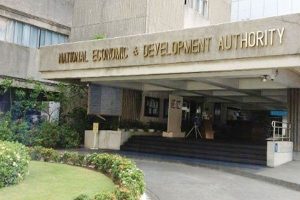Low NEDA review threshold seen deterring investment in local projects

INVESTORS seeking to build local government transport infrastructure are deterred by the low threshold for triggering mandatory National Government review, a feature of the Build-Operate-Transfer (BOT) law, a Senate committee hearing heard.
“No foreign investor would endeavor to enter because there seems to be a legal obstacle here… While (local government units) have autonomy, in reality they do not have it because projects costing P200 million, for instance, would have to go through the NEDA-ICC (National Economic and Development Authority – Investment Coordination Committee),” Senator Francis N. Tolentino said at a budget hearing for NEDA at the Senate Finance Committee.
Mr. Tolentino said the National Government’s limited knowledge of local conditions also delays projects and discourages participation by private-sector partners.
“You have two options: either we do away with the P200 million cap or raise the bar. Because for a highly urbanized city, the need for an effective system of transport can be answered by the LGU,” he added. “They can have their own transportation system without the intervention of the National Government… Can’t we just raise the cap?”
At the same hearing, Socioeconomic Planning Secretary Arsenio M. Balisacan said the recently amended implementing rules and regulations (IRR) of the BOT Law encourage private sector to collaborate with the LGUs.
“What we are doing right now is to improve the processes and making sure that these public investments and public infrastructure programs proceed smoothly,” Mr. Balisacan said.
“For example, the first thing we have done recently is amending the BOT IRR to encourage the private sector to be more involved with public infrastructure. That would open up doors for involvement, even LGUs, in public infrastructure development,” he added.
Mr. Balisacan said NEDA will revisit the BOT to review the P200 million threshold, and will work with Congress via the Legislative Executive Development Advisory Council.
In amending the BOT, Senator Juan Edgardo M. Angara said the process of adjusting thresholds should be indexed to inflation.
“We should amend it and we should (require) indexation every five years or something like that,” he said.
President Ferdinand R. Marcos, Jr. cited amendments to the BOT Law as priority legislation. He has called on LGUs to be open to public-private partnerships for their projects.
“I think this is the way forward, and I encourage all our (LGUs) to be open to the possibilities of PPPs,” he said in a meeting with the League of Cities of the Philippines in Malacañang two months ago.
“There’s ODA (official development assistance), there’s private sector (financing), joint ventures … Local governments generally cannot do it by themselves. We have to find partners… we have to find investors. You’re used to that.”
The Supreme Court’s Mandanas ruling granted LGUs a larger share of the national taxes, as well as a larger share of responsibilities.
As a result of the ruling, LGU allocations saw a 37.89% increase to P959 billion in 2022, reflecting National Government income from three years prior. However, because of decreased revenue collections in 2020 due to the pandemic, the allotment for next year is estimated to decrease by 14.47% to P820 billion. — Diego Gabriel C. Robles




